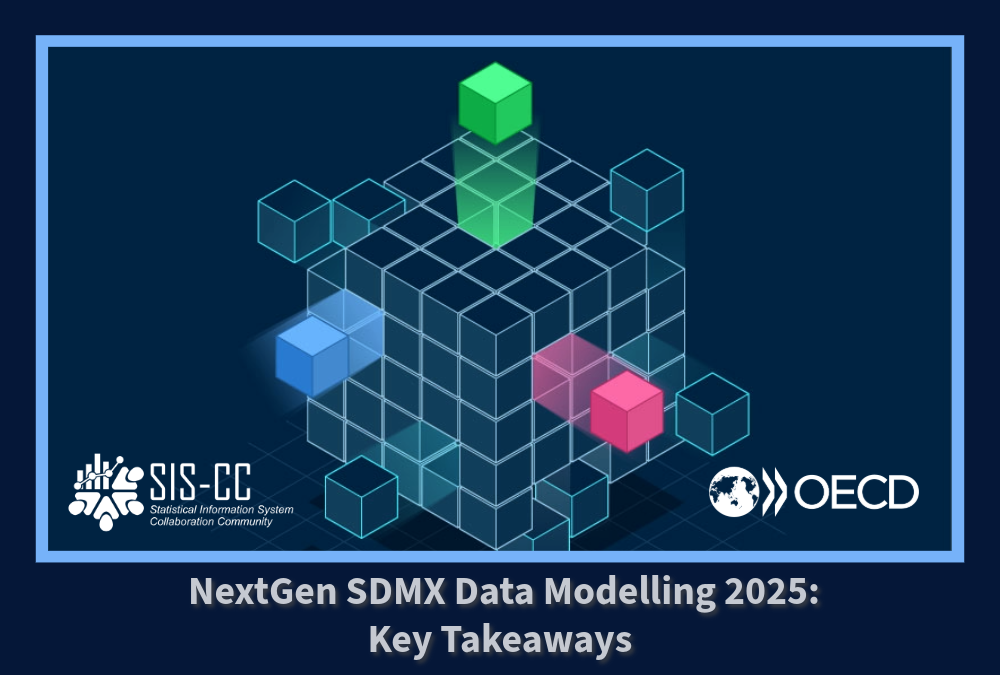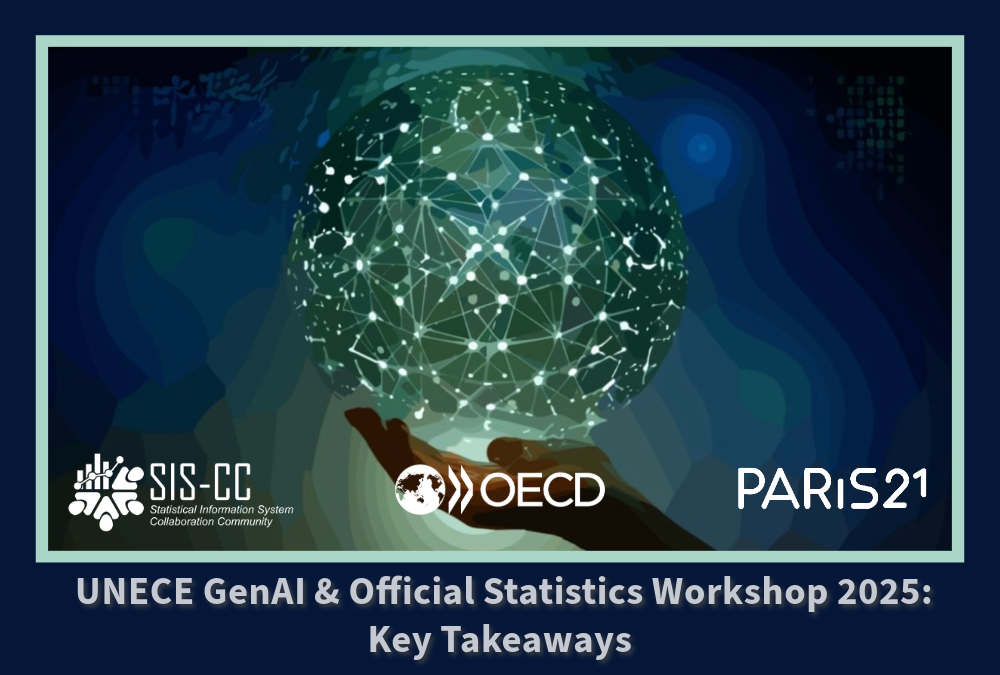Software is everywhere in today’s digital-first world—and this is certainly true for statistical offices and central banks. Yet for software-based digital products to thrive, they must remain tailored closely to important user needs, which are constantly evolving. Building reliable, software-based digital products that evolve in tandem with user needs requires a user-centered paradigm that departs from classical software approaches.
Following a classical software development approach, project managers use Waterfall-style management to build monolithic software systems based on closed code and with a number of manual steps in the testing and deployment phases. This approach often leads to high costs and unreliable quality making it impossible to meet the demands of end-users in a timely manner.
The OECD-led Statistical Information System Collaboration Community (SIS-CC) and Global Network of Data Officers and Statisticians, hosted at the United Nations Statistical Division, aimed to foster discussion on issues such as these and presented lessons learned in a webinar on Tuesday, 22 March 2022, 08:30 EST.
The Community, under its .Stat Academy initiative and upon invitation of the Global Network, will hold a presentation on the move from a classical to an agile, user-centred software development approach and lessons learned using the example of the open-source platform .Stat Suite, a leading open source statistical information system platform custom build for the needs of statistical offices and central banks.
In this talk, Jens Dossé, Smart Data Solutions team lead in the OECD Statistics and Data Directorate, and Jean-Baptiste Nonin, product analyst consultant for the Smart Data Solutions team, shared their experiences as the SIS-CC product team evolve to embrace agile, DevOps based workflows that embraced modern software engineering approaches and lean product management principles.
They showed how product managers apply user-focused functional design principles, how the solution team manages the open-source project to maximise code sharing, and how the engineering team practices continuous delivery of componentised software with a high degree of automation and velocity, which optimises productivity, quality, and shipping time, thanks to state-of-the-art technologies, such as Git and containerisation.
Jens Dossé is leading the Smart Data Solutions team at the OECD, Statistics & Data Directorate. He is been involved in a number of projects developing tools and platforms for the OECD statisticians over the past 13 years, as a developer, architect and team leader. In his current function, Jens is focusing on driving the .Stat Suite product design and development. In this function, he led his team and the SIS-CC in adopting cutting edge techniques from the world of agile development, DevOps, cloud and user-driven product management. Jens is chair of the Architecture Task Force in the Statistical Information System Collaboration Community (SIS-CC), and co-chair of the SDMX Technical Working Group. Before joining OECD, Jens started his career at Eurostat, where was specialised in seasonal adjustment techniques and tools. Jens is mathematician by education.
Jean-Baptiste Nonin is a product analyst consultant for the Smart Data Solutions team at the OECD, Statistics & Data Directorate. Since 2015, he is involved in various projects for building and delivering statistical tools, and especially the .Stat Suite for the Statistical Information System Collaboration Community (SIS-CC). Jean-Baptiste mainly coordinates user needs and developers work, he orchestrates the planning and delivery in an agile and collaborative way, and he ensures transparency, consistency, and traceability in a mature open-source model. Before collaborating with the OECD, Jean-Baptiste started his career as a journalist and press editor, then he turned to the wide world of data consultancy.


